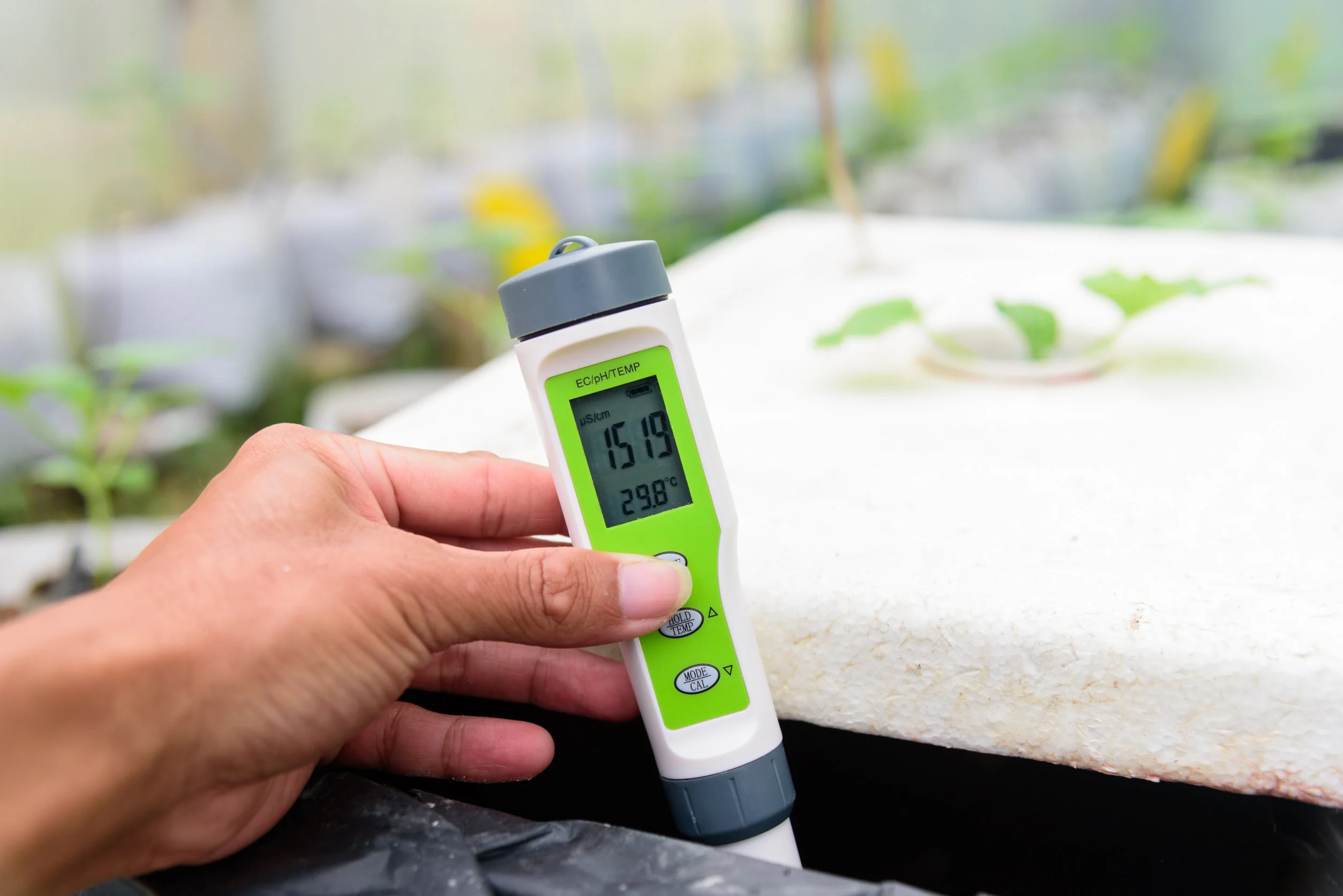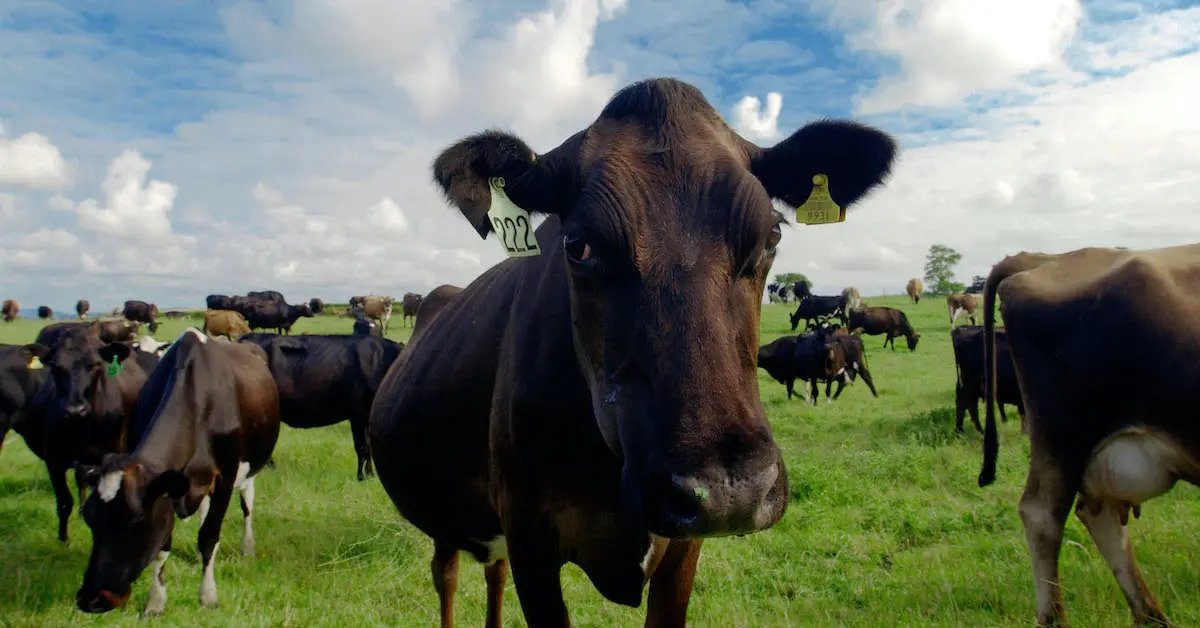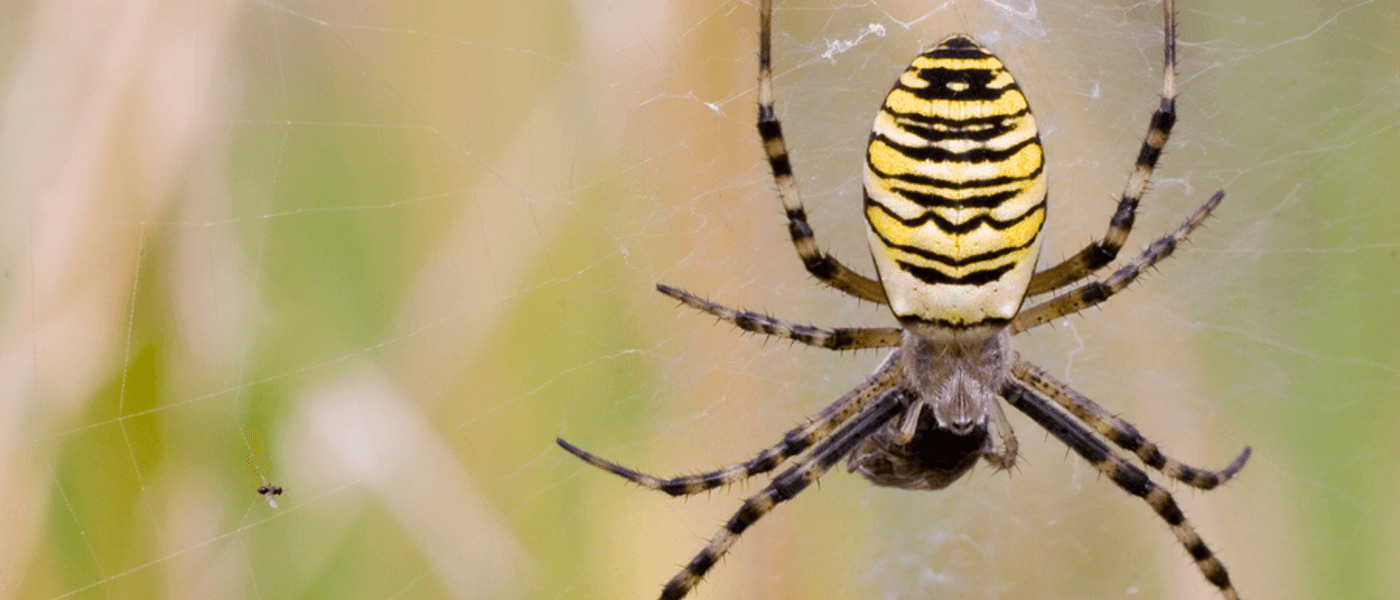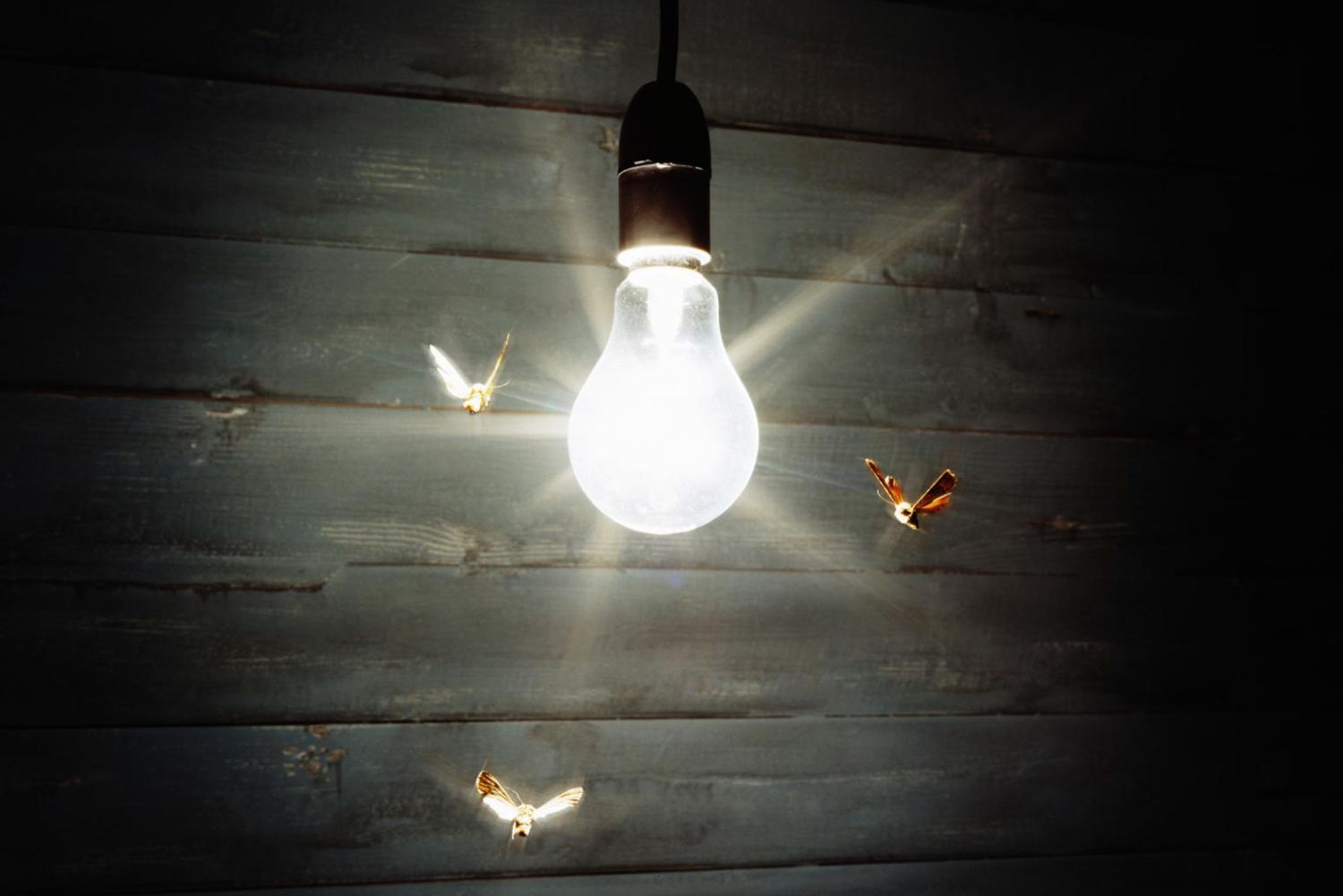Home>Gardening News and Trends>Latest News>Why Insects Are Important
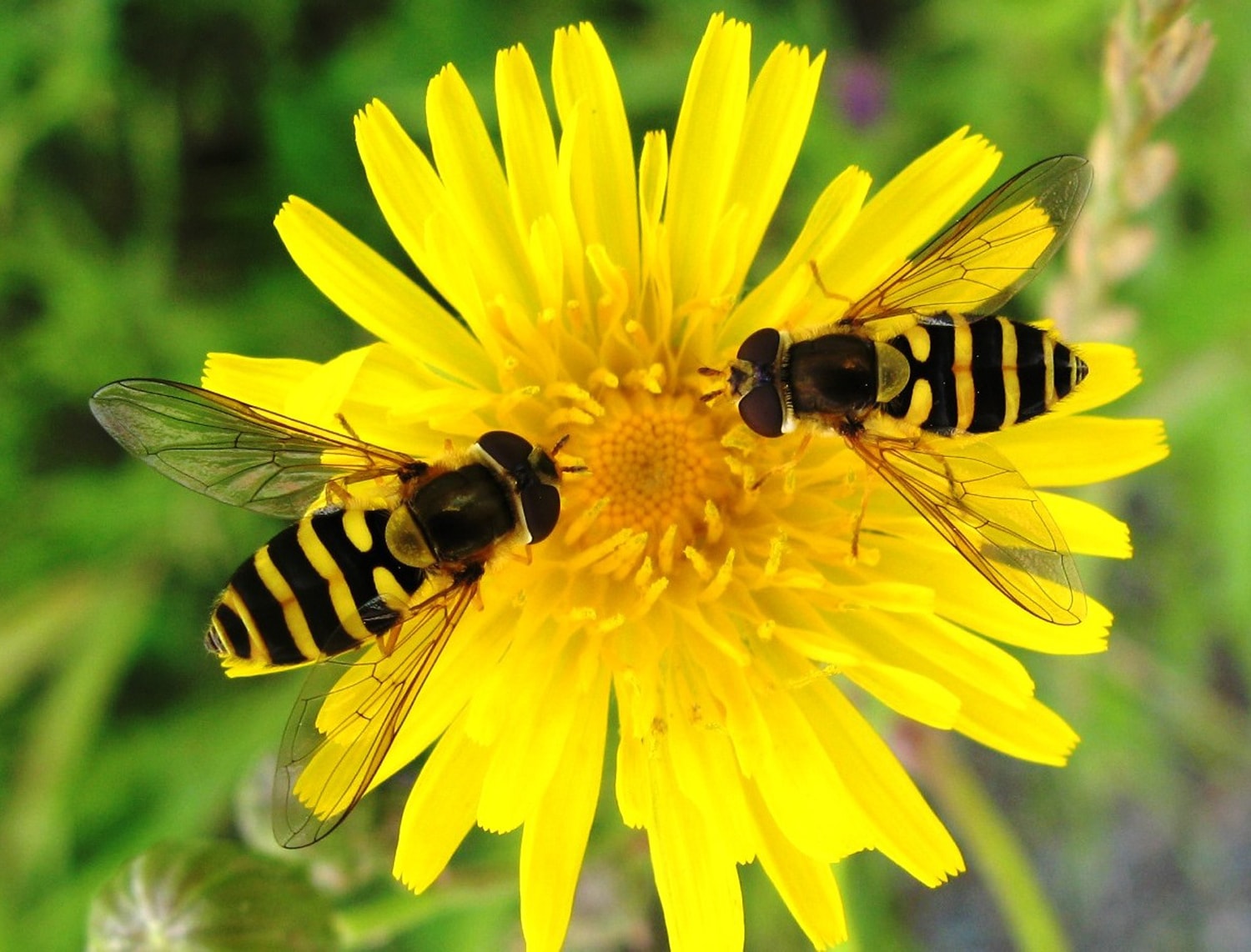

Latest News
Why Insects Are Important
Published: November 28, 2023
Discover the latest news and insights on why insects are important for the environment and our ecosystems. Learn about their crucial roles in pollination, pest control, and nutrient recycling.
(Many of the links in this article redirect to a specific reviewed product. Your purchase of these products through affiliate links helps to generate commission for Chicagolandgardening.com, at no extra cost. Learn more)
Table of Contents
Introduction
Insects are a diverse and vast group of organisms that play a crucial role in our ecosystem. From the smallest crawling creatures to the most vibrant and delicate flying insects, they form an integral part of the natural world. Often overlooked or misunderstood, insects provide a multitude of benefits that are essential for the health and functioning of our planet.
Pound for pound, insects make up the majority of Earth’s species, with an estimated 6-10 million different types of insects. They inhabit almost every corner of the world, from the depths of the oceans to the highest mountaintops. Insects have successfully adapted to a wide range of environments, making them one of the most successful groups of organisms on our planet.
There are numerous reasons why insects are essential to our ecosystem. Their roles include pollination, decomposition, nutrient cycling, pest control, and even serving as a vital food source for other animals. They also play a crucial role in maintaining the delicate balance and harmony within ecosystems. Understanding the significance of insects is vital for our own well-being, as these tiny creatures serve as the backbone of our natural world.
Throughout history, humans have had a complex relationship with insects. From awe and admiration to fear and contempt, our perception of insects has varied across cultures and time periods. In ancient civilizations, insects were revered as symbols of transformation and rebirth, while in modern times, they are often seen as pests or nuisances. However, a deeper understanding of their ecological importance reveals the crucial role they play in sustaining life on Earth.
In this article, we will explore the various ways in which insects contribute to our ecosystem. From their role as pollinators to their impact on nutrient cycling and pest control, we will delve into the myriad of reasons why insects are essential. Additionally, we will examine the threats that insects face and the importance of conserving their populations for the future of our planet.
Role of Pollinators
Pollination is a vital ecological process that facilitates the reproduction of flowering plants, and insects are key players in this process. As they move from flower to flower in search of nectar and pollen, insects inadvertently transfer pollen grains, enabling the fertilization of plants and the production of seeds and fruits. This mutually beneficial relationship between plants and insects has a far-reaching impact on our ecosystems and food production.
A vast majority of flowering plants rely on pollinators, such as bees, butterflies, moths, and beetles, to transfer pollen between male and female reproductive organs. This process leads to the production of seeds that give rise to new generations of plants. Approximately 80% of all flowering plants require animal pollinators, and most of these pollinators are insects.
Bees, in particular, are highly efficient pollinators and are responsible for pollinating a significant number of food crops, including fruits, vegetables, and nuts. They have specialized body structures and behaviors that make them excellent pollinators. As bees visit flowers to collect nectar, pollen grains stick to their bodies and are transported to other flowers, aiding in cross-pollination.
Butterflies and moths also contribute to pollination, especially for plants that have long-tubed flowers. These insects have long proboscises that allow them to reach deep into flowers to access nectar. In the process, they pick up and transfer pollen from one flower to another.
Not only do insect pollinators support the reproduction of wild plants, but they also play a crucial role in agricultural systems. Many crops, such as almonds, apples, and berries, depend heavily on insect pollinators for high yields and quality production. By facilitating pollination, insects contribute to the diversity and abundance of food available to both humans and wildlife.
Furthermore, the economic value of insect pollinators cannot be underestimated. According to estimates, the global economic value of pollination by insects is in the billions of dollars annually. This includes the value of crop production, as well as the products derived from these crops, such as honey, wax, and natural fibers.
Overall, the role of pollinators, primarily insects, is essential for the functioning of ecosystems and the sustainability of food production. Without their invaluable pollination services, the diversity and abundance of plant species would decline, causing a ripple effect throughout the food web. Therefore, it is crucial to protect and promote the conservation of insect pollinators to ensure the continued health and productivity of our ecosystems.
Role in Decomposition
When it comes to maintaining the balance of ecosystems, insects play a vital role in the process of decomposition. Decomposition is the natural breakdown of organic matter into simpler substances, which helps in recycling nutrients and returning them to the soil. Insects, along with other decomposers like bacteria and fungi, are responsible for breaking down dead plant and animal material, accelerating the decomposition process.
One of the key contributors to decomposition is the group of insects known as detritivores. Detritivores, including beetles, ants, and flies, feed on decaying organic matter like dead leaves, fallen trees, and animal carcasses. They break down this organic material by consuming and fragmenting it, increasing its surface area and making it more accessible to other decomposers.
During the process of decomposition, insects play a significant role in nutrient recycling. As they consume organic matter, they decompose it and convert it into simpler forms, such as nitrogen, phosphorus, and potassium, which are essential for the growth of plants. These nutrients are then returned to the soil, enriching it and promoting the growth of new vegetation.
In addition to breaking down organic matter, insects also aid in the dispersal of decomposing material. For example, burying beetles bury small animal carcasses underground, helping to break them down and distribute the nutrients throughout the soil. Similarly, dung beetles play a crucial role in the decomposition of animal waste by rolling and burying it, which helps to reduce odors and control the spread of diseases.
Furthermore, the activities of insects during decomposition also influence soil structure and aeration. As they tunnel through the soil and consume organic material, they create pathways for air and water to penetrate the soil, promoting its overall health and fertility. Insects also contribute to the formation of humus, a dark, organic-rich material that improves soil structure and provides a source of nutrients for plants.
By facilitating the decomposition process, insects help to maintain the balance of ecosystems and ensure the efficient cycling of nutrients. Without their contributions, dead matter would accumulate, leading to the depletion of resources and hindering the growth and productivity of plants and other organisms.
Therefore, recognizing and appreciating the role of insects in decomposition is essential for understanding the intricate web of life and the interconnectedness of all living organisms. Protecting and preserving insect populations is crucial to maintaining the delicate balance of ecosystems and promoting the health and sustainability of our planet.
Nutrient Cycling
Nutrient cycling is a fundamental process in ecosystems that involves the movement and recycling of essential elements and compounds, such as carbon, nitrogen, and phosphorus. Insects contribute significantly to nutrient cycling through their feeding habits, waste production, and interactions with other organisms.
One way insects facilitate nutrient cycling is through their feeding behaviors. Many insects are herbivores, feeding on plants and extracting nutrients from their leaves, stems, and fruits. As they consume plant material, insects take in various essential nutrients. Some of these nutrients are utilized by the insects themselves for growth and development, while others are excreted as waste.
Excretions of insects, such as feces and urine, contain concentrated amounts of nutrients, including nitrogen and phosphorus. These excretions can be essential sources of nutrients for other organisms in the ecosystem. In fact, insect feces contribute significantly to the nutrient availability in soils, providing a vital source of nutrients for plant growth.
Furthermore, as insects feed on plant material, they break it down and increase its surface area. This fragmentation process creates smaller pieces that are more easily decomposed by other organisms, such as bacteria and fungi. These microorganisms further decompose the plant material and release nutrients that were locked within it, making them available for uptake by plants and ultimately completing the nutrient cycle.
Insects also contribute to nutrient cycling through their interactions with other organisms. For example, certain species of ants engage in mutualistic relationships with plants, known as myrmecophytes. These plants provide ants with shelter and food sources, such as nectar or extrafloral nectaries. In return, ants protect these plants from herbivores and help to disperse seeds. This symbiotic relationship promotes nutrient cycling by ensuring the dispersal and germination of seeds, leading to the growth of new plants.
Additionally, insects are an essential part of the food chain, serving as a valuable source of nutrients for other animals, such as birds, reptiles, and mammals. As insects are consumed by predators, their nutrients are transferred up the food chain, contributing to the overall nutrient cycling within the ecosystem.
Through their feeding habits, waste production, and interactions with other organisms, insects play a vital role in nutrient cycling. They help to extract, distribute, and recycle nutrients, ensuring their availability for the growth and development of plants and other organisms in the ecosystem. Understanding and appreciating the impact of insects on nutrient cycling is crucial for maintaining healthy and sustainable ecosystems.
Pest Control
Insects are natural predators and play a crucial role in controlling populations of pests in ecosystems. Pest control is the management of organisms that cause damage or harm to crops, livestock, or structures, and insects are a vital component in this process.
Many insects are predatory, feeding on other insects or small animals that are considered pests. These insect predators act as natural biological control agents, helping to regulate the population sizes of pest species. By consuming pests, insects prevent their populations from reaching damaging levels and assist in maintaining a balance between predator and prey.
Ladybugs, also known as ladybirds or ladybird beetles, are well-known predators of aphids, a common plant pest. A single ladybug can consume hundreds of aphids in a day, making them effective and natural pest controllers. Similarly, lacewings and hoverflies are predators of various pests, including aphids, caterpillars, and mealybugs.
Another method of pest control employed by insects is parasitism. Parasitoid wasps, for example, have a unique life cycle where they lay their eggs inside or on the bodies of other insects, typically pest species. The wasp larvae then develop by feeding on their host, eventually killing it. This helps to reduce the population of the targeted pest species.
In addition to predation and parasitism, some insects contribute to pest control through other means. For instance, certain types of beetles and mites feed on weed seeds, helping to reduce the spread and germination of unwanted plant species. These insects provide a valuable service by helping to manage weeds and maintain the integrity of ecosystems.
The use of chemical pesticides for pest control in agriculture often raises concerns due to their potential negative impacts on the environment and human health. Integrated Pest Management (IPM) is an approach that combines different pest control strategies, including the use of beneficial insects, to minimize the reliance on chemical pesticides. By promoting the presence of natural predators and parasites, IPM utilizes the ecological balance to control pests in a more sustainable and environmentally friendly manner.
The role of insects in pest control is invaluable, as they offer a natural and sustainable approach to managing pest populations. By preying on pests or parasitizing their host species, insects help to reduce the need for chemical pesticides, protecting both agricultural crops and ecological systems from potential harm.
Recognizing the importance of insects in pest control allows us to appreciate their ecological contributions and encourages the adoption of sustainable pest management practices that work in harmony with nature.
Food Source
Insects serve as an essential food source for a wide range of organisms, including birds, reptiles, amphibians, mammals, and even other insects. The abundance and diversity of insects make them a crucial component of food webs and provide energy and nutrients for various species.
Many birds heavily rely on insects as a primary food source, especially during the breeding season when they need to provide a high-protein diet for their chicks. Insect-eating birds, such as warblers, flycatchers, and swallows, depend on insects to meet their nutritional needs. Insects provide an excellent source of protein, vitamins, and other essential nutrients necessary for bird growth and survival.
Reptiles, such as lizards and some species of turtles, also feed on insects as a significant part of their diet. Insects offer a readily available and energy-rich food source for these cold-blooded animals, helping them meet their dietary requirements for growth and maintenance.
Amphibians, including frogs, toads, and salamanders, are known for their dependence on insects as a primary food source. As larvae, many amphibians are herbivorous, but they transition into insectivorous predators as adults. Insects provide a crucial source of nutrition for these creatures, supplying them with the energy needed for their life cycles.
Not only do insects serve as a food source for larger animals, but they are also an important component of the diet for numerous small mammals, such as shrews, bats, and small rodents. Insects offer a high-calorie meal, packed with proteins, fats, and essential nutrients that support the growth and survival of these small mammals.
Interestingly, even some insects themselves rely on other insects as their primary food source. For example, praying mantises and dragonflies are predatory insects that feed on a variety of insects, including flies, mosquitoes, and other small arthropods.
The abundance of insect species and their accessibility make them an important food source for various organisms at the base of the food chain. By providing energy and nutrients, insects support the survival and growth of larger organisms, contributing to the overall stability and functioning of ecosystems.
Furthermore, humans have also recognized the nutritional value of insects and their potential as a sustainable food source. In many cultures around the world, insects are a traditional and staple food item. They are highly nutritious, rich in protein, healthy fats, vitamins, and minerals. Incorporating insects into our diets can help alleviate food shortages, reduce pressure on traditional livestock farming, and minimize the environmental impact of food production.
Insects as a food source offer numerous benefits, from their nutritional value to their potential in sustainable food production. Exploring and embracing insects as a food source can open up new avenues for food security and environmental sustainability.
Ecological Balance
One of the most crucial roles that insects play in our ecosystems is maintaining ecological balance. They are integral to the intricate web of interactions and relationships among different organisms, contributing to the stability and functioning of ecosystems.
Insects participate in various ecological processes, such as pollination, decomposition, and nutrient cycling, which have already been discussed in detail. Through these processes, insects help to ensure the availability of resources, energy flow, and the recycling of nutrients within ecosystems.
In addition to their direct ecological contributions, insects also serve as a vital link in food webs. They occupy various trophic levels, both as primary consumers feeding on plants and as prey for higher-level consumers. Their abundance and availability make them a critical food source for many animals, including birds, reptiles, amphibians, mammals, and other insects. The interactions between different species help to regulate populations, preventing overpopulation or extinction of certain species.
Furthermore, insects play a role in plant-pollinator relationships, ensuring the reproduction and survival of a wide range of plant species. They transfer pollen between flowers, facilitating fertilization and the production of seeds and fruits. This process not only promotes plant diversity but also provides food and habitat for many other organisms.
Insects also contribute to maintaining the balance between herbivores and plants. While some insects feed on plant material, their consumption typically stimulates plant defenses, leading to the production of chemical compounds that deter further herbivory. This interaction helps to prevent the overconsumption of plants and maintains the overall health and diversity of plant communities.
Furthermore, insects serve as indicators of ecosystem health. Their sensitivity to environmental changes, such as pollution or habitat degradation, makes them valuable indicators of the overall condition of an ecosystem. Declines in insect populations can signify disturbances or imbalances within ecosystems, alerting us to potential problems that require attention.
Preserving insect diversity and maintaining their populations is crucial for the overall health and functioning of our ecosystems. Their presence contributes to the stability of food webs, the successful reproduction of plant species, and the regulation of populations. Protecting and conserving insects is essential for maintaining ecological balance and ensuring the sustainability of our natural environments.
Cultural Significance
Insects have long held cultural significance in various human societies around the world. From ancient myths and folklore to contemporary art and symbolism, insects have left a lasting impression on our cultural heritage. They inspire wonder, fear, and fascination, and their significance is deeply intertwined with our history, beliefs, and artistic expressions.
In many ancient civilizations, insects were revered and considered symbols of transformation and rebirth. For example, in ancient Egypt, scarab beetles were associated with the god Khepri, representing the cycle of life and the rising of the sun. The intricate patterns and iridescence of insect wings have inspired artists and craftsmen throughout history, with insects becoming motifs in jewelry, textiles, and decorative arts.
Insects have also played a role in traditional medicine and holistic healing practices. In many cultures, various insects or their parts were used as ingredients in remedies and herbal medicines. For example, Asian cultures have utilized silkworm pupae for its perceived health benefits, and in traditional Chinese medicine, ground-up insects have been used to treat various ailments.
In contemporary times, insects continue to be a source of inspiration for artists, filmmakers, and writers. Their unique forms, behaviors, and colors make them subjects of fascination and exploration. In literature and film, insects often symbolize transformation, survival, and the resilience of nature. They are portrayed as both heroes and villains, embodying the complex and diverse aspects of the human psyche.
Furthermore, insects have a significant impact on popular culture, with their images and symbolism found in advertising, fashion, and entertainment. Companies utilize insect motifs to convey messages of elegance, agility, and innovation. Insects are often used as symbols of resilience and adaptation, inspiring individuals to overcome obstacles and achieve personal growth.
Moreover, insects have become a source of gastronomic exploration in recent years. Insect-based cuisine, known as entomophagy, is gaining popularity as a sustainable and nutritious alternative to traditional livestock farming. The consumption of insects is not only seen as an eco-friendly choice but also as a way to experience diverse flavors and cultural traditions.
Recognizing the cultural significance of insects is essential for understanding our own relationship with them and promoting their conservation. By appreciating their beauty, symbolism, and contributions to our cultural heritage, we can foster a deeper connection with the natural world and encourage the preservation of these remarkable creatures.
Threats to Insects
Insects, despite their incredible adaptability and resilience, face numerous threats that pose significant challenges to their survival and well-being. These threats, largely caused by human activities, have the potential to disrupt ecosystems, reduce biodiversity, and have far-reaching consequences for the health of our planet.
Habitat loss and fragmentation are among the most significant threats to insect populations. As natural habitats are converted into agricultural land, urban areas, or industrial zones, insects lose their homes and essential resources. Fragmentation of habitats further exacerbates the problem, as it restricts the movement and dispersal of insect populations, making them more vulnerable to extinction.
The use of pesticides is another critical threat to insect populations. Pesticides, including insecticides, herbicides, and fungicides, are commonly used in agriculture to control pests, weeds, and diseases. While pesticides can effectively target specific pests, they often have unintended consequences on non-target organisms, including beneficial insects. Insect populations can be decimated by the indiscriminate use of pesticides, disrupting ecological balance and causing a ripple effect throughout the food web.
Climate change is also emerging as a significant threat to insects. Rising temperatures, changes in precipitation patterns, and extreme weather events can impact the availability of resources and disrupt important insect life cycles. For example, warmer temperatures can disrupt the synchronization between plants and their pollinators, affecting the reproduction of both parties.
Loss of biodiversity, especially the decline of host plants and native flora, can have detrimental effects on specific insect species. Many insects have close associations with particular plant species, relying on them for survival and reproduction. When these host plants are lost due to habitat destruction or invasive species, the corresponding insect species are also at risk.
Invasive species pose a unique threat to native insect populations. Invasive insects can outcompete native species for resources, introduce new diseases, or disrupt natural ecological processes. They can cause significant ecological and economic damage, as has been seen with the emerald ash borer and the Asian longhorned beetle.
Light pollution is a lesser-known threat to insects. Artificial light can disrupt the normal behaviors of nocturnal insects, such as navigation, foraging, and mating. This disruption can result in reduced reproductive success and overall population decline in certain insect species.
The cumulative impact of these threats has led to alarming declines in insect populations worldwide. According to some studies, insect populations have declined by up to 80% in certain regions. This decline has far-reaching implications for ecosystems, as insects play vital roles in pollination, decomposition, nutrient cycling, and pest control.
Recognizing and addressing these threats is crucial for ensuring the conservation of insects and the health of our ecosystems. It requires implementing sustainable agricultural practices, reducing pesticide use, preserving and restoring habitats, addressing climate change, and raising awareness about the importance of maintaining insect populations. By taking action to protect insects, we are not only safeguarding their future but also preserving the intricate balance of life on Earth.
Conclusion
Insects are not merely small, insignificant creatures. They are essential components of our ecosystems, playing diverse and critical roles that contribute to the health, balance, and functioning of our natural world. From pollination to decomposition, nutrient cycling to pest control, insects are intricately intertwined with the web of life.
However, insects face numerous threats that jeopardize their populations and the vital services they provide. Habitat loss, pesticide use, climate change, and the loss of biodiversity pose significant challenges to their survival. The decline in insect populations has far-reaching consequences for ecosystems, agricultural productivity, and human well-being.
Recognizing the ecological significance of insects and the challenges they face is crucial for their conservation. Protecting and preserving their habitats, implementing sustainable farming practices, reducing pesticide use, addressing climate change, and raising awareness about the importance of insects are necessary steps to ensure their continued presence in our ecosystems.
Furthermore, appreciating the cultural significance of insects and exploring their potential as a sustainable food source creates opportunities for a more harmonious relationship between humans and these remarkable creatures.
As individuals, we can contribute to insect conservation by creating insect-friendly habitats in our gardens, supporting organic and sustainable farming practices, and advocating for policies that prioritize the protection of insect populations.
Insects may be small, but their impact is immense. They are the unsung heroes of our ecosystems, quietly carrying out vital roles that often go unnoticed. Our collective efforts to conserve and appreciate insects will have a lasting impact on the health and well-being of our planet and future generations to come.



